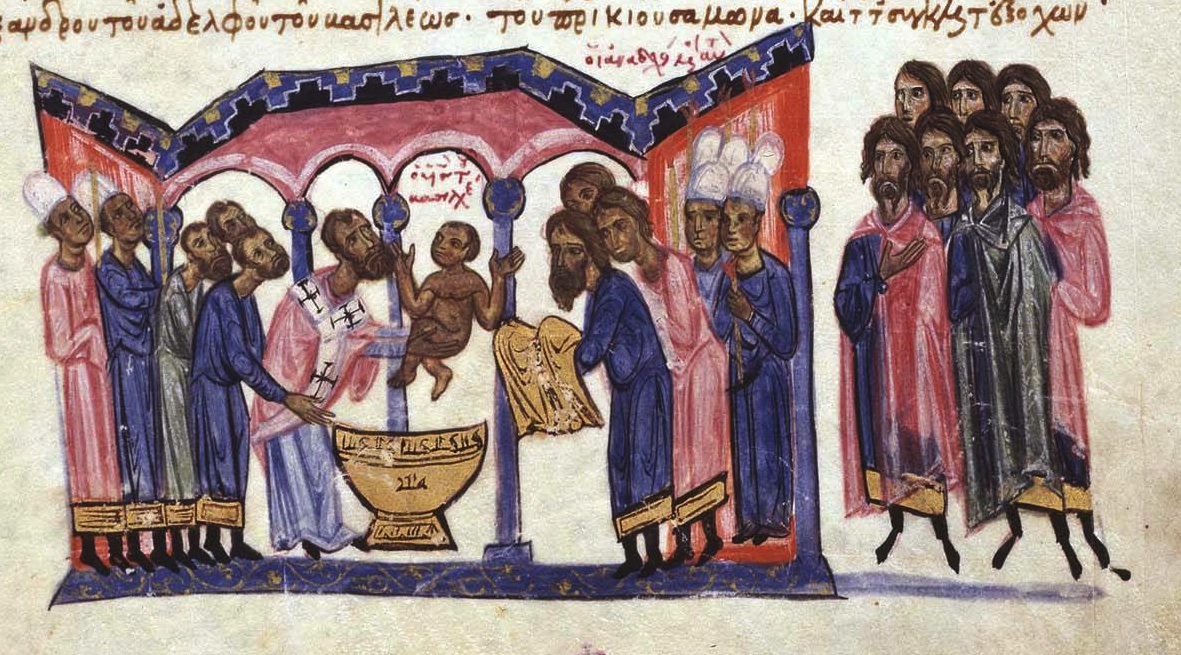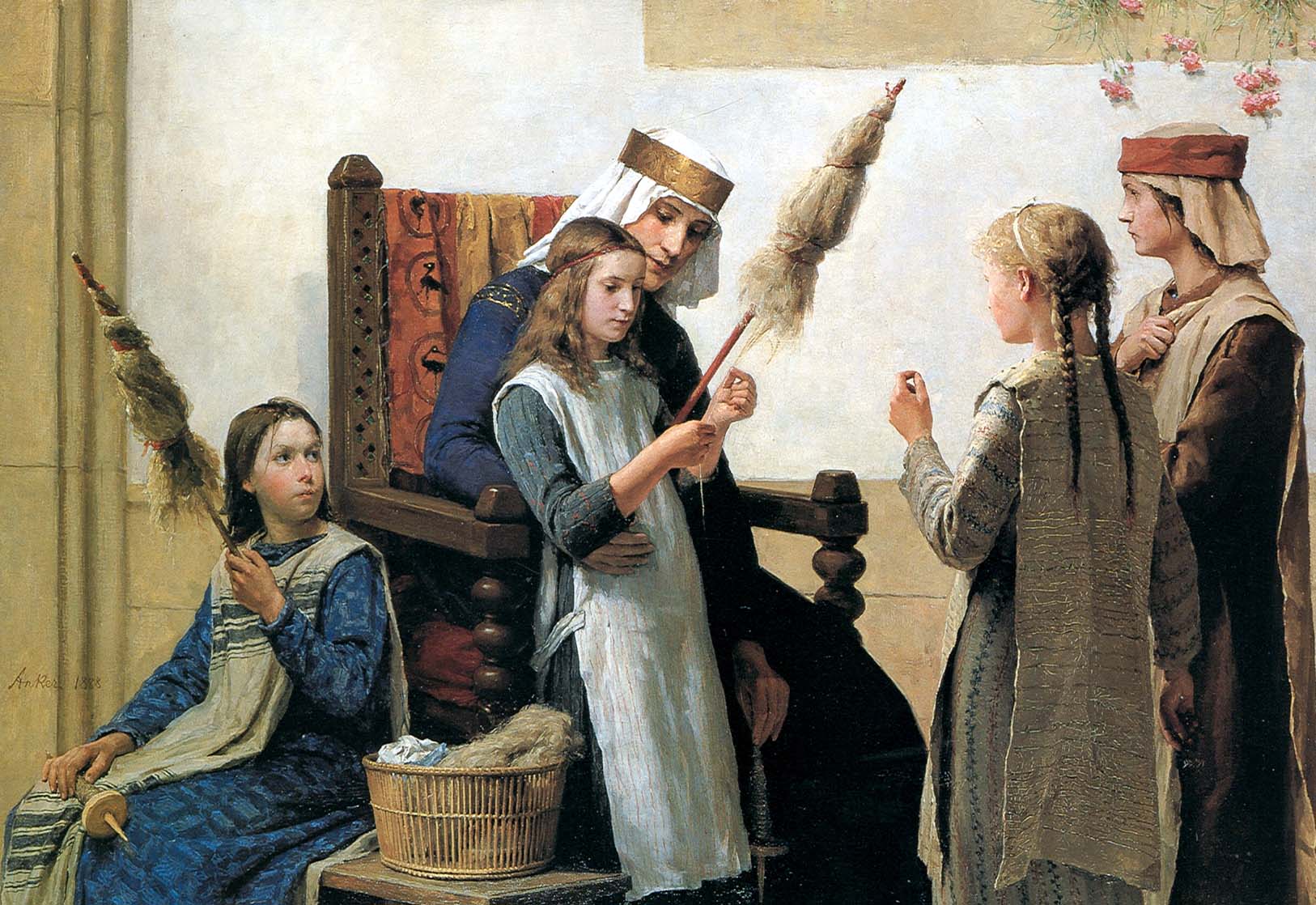|
David II Of Iberia
David II ( ka, დავით II) (died 937) was a member of the Georgian Bagratid dynasty of Tao-Klarjeti and titular king of Iberia from 923 until his death. The eldest son and ultimate successor of Adarnase IV of Iberia as king of Iberia, David's control was limited to the duchies of Queli-Javakheti, and Lower Tao as the core lands of Inner Iberia (Shida Kartli) were under the Abkhazian control. In spite of his royal title and unlike his father, David did not bear the traditional high Byzantine title of ''curopalates'' which was bestowed by the emperor upon David's younger brother Ashot II. As a result, David's influence and prestige were overshadowed by those of his younger brother, Ashot II. As evidenced by Constantine Porphyrogenitus's ''De Administrando Imperio'', David only had the title of ''magistros'' which he shared with his relative Gurgen II of Tao. Both Gurgen and David resolutely opposed the Byzantine takeover of the Bagratid town of Artanuji, a fief of Gurgen's ... [...More Info...] [...Related Items...] OR: [Wikipedia] [Google] [Baidu] |
Kingdom Of The Iberians
The Kingdom of the Iberians ( ka, ქართველთა სამეფო, tr) was a medieval Georgian monarchy under the Bagrationi dynasty which emerged circa 888 AD, succeeding the Principality of Iberia, in historical region of Tao-Klarjeti, or upper Iberia in north-eastern Turkey as well parts of modern southwestern Georgia, that stretched from the Iberian gates in the south and to the Lesser Caucasus in the north. Historically, the area comprised the following historical districts: West of the Arsiani Mountains were Tao, Klarjeti, Nigali, and Shavsheti, to the east lay Meskheti, Erusheti, Javakheti, Artaani, Abotsi, Göle, Kola and Basiani. The landscape is characterised by mountains and the river-systems of the Çoruh and the Kura. The region played a crucial role in the unification of all Georgian lands and principalities into Kingdom of Georgia in 1008. History Establishment In 813, the last Iberian prince Ashot I of the Bagrationi dynasty establishe ... [...More Info...] [...Related Items...] OR: [Wikipedia] [Google] [Baidu] |
Constantine VII
Constantine VII Porphyrogenitus (; 17 May 905 – 9 November 959) was the fourth Emperor of the Macedonian dynasty of the Byzantine Empire, reigning from 6 June 913 to 9 November 959. He was the son of Emperor Leo VI and his fourth wife, Zoe Karbonopsina, and the nephew of his predecessor Alexander. Most of his reign was dominated by co-regents: from 913 until 919 he was under the regency of his mother, while from 920 until 945 he shared the throne with Romanos Lekapenos, whose daughter Helena he married, and his sons. Constantine VII is best known for the ''Geoponika'' (τά γεοπονικά), an important agronomic treatise compiled during his reign, and three, perhaps four, books; ''De Administrando Imperio'' (bearing in Greek the heading Πρὸς τὸν ἴδιον υἱὸν Ῥωμανόν), '' De Ceremoniis'' (Περὶ τῆς Βασιλείου Τάξεως), '' De Thematibus'' (Περὶ θεμάτων Άνατολῆς καὶ Δύσεως), and ''Vita Basilii'' ( ... [...More Info...] [...Related Items...] OR: [Wikipedia] [Google] [Baidu] |
10th-century Monarchs In Asia
1 (one, unit, unity) is a number representing a single or the only entity. 1 is also a numerical digit and represents a single unit of counting or measurement. For example, a line segment of ''unit length'' is a line segment of length 1. In conventions of sign where zero is considered neither positive nor negative, 1 is the first and smallest positive integer. It is also sometimes considered the first of the infinite sequence of natural numbers, followed by 2, although by other definitions 1 is the second natural number, following 0. The fundamental mathematical property of 1 is to be a multiplicative identity, meaning that any number multiplied by 1 equals the same number. Most if not all properties of 1 can be deduced from this. In advanced mathematics, a multiplicative identity is often denoted 1, even if it is not a number. 1 is by convention not considered a prime number; this was not universally accepted until the mid-20th century. Additionally, 1 is the s ... [...More Info...] [...Related Items...] OR: [Wikipedia] [Google] [Baidu] |
Kings Of Bagratid Iberia
Kings or King's may refer to: *Monarchs: The sovereign heads of states and/or nations, with the male being kings *One of several works known as the "Book of Kings": **The Books of Kings part of the Bible, divided into two parts **The ''Shahnameh'', an 11th-century epic Persian poem **The Morgan Bible, a French medieval picture Bible **The Pararaton, a 16th-century Javanese history of southeast Asia *The plural of any king Business * Kings Family Restaurants, a chain of restaurants in Pennsylvania and Ohio *Kings Food Markets, a chain supermarket in northern New Jersey * King's Favourites, a brand of cigarettes *King's Variety Store, a chain of stores in the USA *King's (defunct discount store), a defunct chain of discount stores in the USA Education *King's College (other), various colleges * King's School (other), various schools * The King's Academy (other), various academies Electoral districts * King's (New Brunswick electoral district) (1867–1 ... [...More Info...] [...Related Items...] OR: [Wikipedia] [Google] [Baidu] |
937 Deaths
Year 937 ( CMXXXVII) was a common year starting on Sunday (link will display the full calendar) of the Julian calendar. Events By place Europe * A Hungarian army invades Burgundy, and burns the city of Tournus. Then they go southwards to Italy, pillaging the environs of Naples, Benevento and Monte Cassino. When the Hungarians return home, they are attacked in the Apennine Mountains by Lombard forces, losing their plunder (approximate date). * July 11 – King Rudolph II of Burgundy dies after a 25-year reign, and is succeeded by his 12-year-old son Conrad I ("the Peaceful"). His wife, Queen Bertha, takes effective control of unified Burgundy, transferring its capital to Arles (that Burgundian kingdom was later known from the 12th century as the Kingdom of Arles). * King Otto I refuses to give land to his older (illegitimate) half-brother Thankmar, who gains the support of Eberhard III (duke of Franconia) and Wichmann the Elder, and seizes the fortress of Eresb ... [...More Info...] [...Related Items...] OR: [Wikipedia] [Google] [Baidu] |
King Of Georgia
This is a list of kings and queens regnant of the kingdoms of Georgia before Russian annexation in 1801–1810. For more comprehensive lists, and family trees, of Georgian monarchs and rulers see Lists of Georgian monarchs. Kings of Iberia Presiding princes of Iberia Georgia under Bagrationi dynasty Many members of the Bagrationi dynasty were forced to flee the country and live in exile after the Red Army took control of the short-lived Democratic Republic of Georgia in 1921 and installed the Georgian Communist Party. Since Georgia regained independence in 1990 the dynasty have raised their profile, and in 2008 the two rival branches were united in marriage. Timeline of Georgian monarchs ImageSize = width:800 height:75 PlotArea = width:720 height:50 left:65 bottom:20 AlignBars = justify Colors = id:time value:rgb(0.7,0.7,1) # id:period value:rgb(1,0.7,0.5) # id:age value:rgb(0.95,0.85,0.5) # id:era value:rgb(1,0.85,0.5) # id:eon value:rgb(1,0.85, ... [...More Info...] [...Related Items...] OR: [Wikipedia] [Google] [Baidu] |
Georgetown University Press
Georgetown University Press is a university press affiliated with Georgetown University that publishes about forty new books a year. The press's major subject areas include bioethics, international affairs, languages and linguistics, political science, public policy, and religion. It was founded in 1964, and is a member of the Association of American University Presses (AAUP) and a founding member of the Association of Jesuit University Presses (AJUP). The press publishes the '' Al-Kitaab'' series, the most widely used set of Arabic language textbook series in the United States. It also publishes textbooks and digital materials for other languages including Spanish, Mandarin Chinese, Iraqi Arabic, Moroccan Arabic, Syrian Arabic, Portuguese Portuguese may refer to: * anything of, from, or related to the country and nation of Portugal ** Portuguese cuisine, traditional foods ** Portuguese language, a Romance language *** Portuguese dialects, variants of the Portuguese language ... [...More Info...] [...Related Items...] OR: [Wikipedia] [Google] [Baidu] |
Cyril Toumanoff
Cyril Leo Toumanoff (russian: Кирилл Львович Туманов; 13 October 1913 – 4 February 1997) was a Russian-born Georgian historian and genealogist who mostly specialized in the history and genealogies of medieval Georgia, Armenia, Iran and the Byzantine Empire. His works have significantly influenced the Western scholarship of the medieval Caucasus. Robert H. Hewsen. "In Memoriam: Cyril Toumanoff." ''Journal of the Society for Armenian Studies''. Vol. 8, 1995, 5–7. Family Cyril Toumanoff was born in Saint Petersburg into a family of the military officer of the Russian army. His father's ancestors came of the princely family of Tumanishvili (Tumanov) from Georgia,Rapp, Stephen H. (2003), ''Studies In Medieval Georgian Historiography: Early Texts And Eurasian Contexts'', p. 16. Peeters Bvba, .For the present investigation no single scholar's body of work has had a greater impact than that of Cyril Toumanoff (1913 -1997). Born in St. Peterburg of an old Armeno-Geor ... [...More Info...] [...Related Items...] OR: [Wikipedia] [Google] [Baidu] |
Patrician (ancient Rome)
The patricians (from la, patricius, Greek: πατρίκιος) were originally a group of ruling class families in ancient Rome. The distinction was highly significant in the Roman Kingdom, and the early Republic, but its relevance waned after the Conflict of the Orders (494 BC to 287 BC). By the time of the late Republic and Empire, membership in the patriciate was of only nominal significance. The social structure of Ancient Rome revolved around the distinction between the patricians and the plebeians. The status of patricians gave them more political power than the plebeians. The relationship between the patricians and the plebeians eventually caused the Conflict of the Orders. This time period resulted in changing the social structure of Ancient Rome. After the Western Empire fell, the term "patrician" continued as a high honorary title in the Eastern Empire. In the Holy Roman Empire and in many medieval Italian republics, medieval patrician classes were once again formal ... [...More Info...] [...Related Items...] OR: [Wikipedia] [Google] [Baidu] |
Ashot The Swift
Ashot the Swift (died in 939) ( ka, აშოტ კისკასი, tr) was a Georgian prince of the Bagrationi dynasty from Tao-Klarjeti. He was nicknamed ''Kiskas'', meaning "the Swift" Ashot was a son of Bagrat I of Klarjeti. He was married to the sister of George II of Abkhazia. Together they had a daughter who was married to Gurgen II of Tao. Ashot was in possession of the important fortified town of Artanuji, which he probably inherited from his elder brother, Gurgen I of Klarjeti. According to Constantine Porphyrogenitus' '' De Administrando Imperio'', Ashot was on bad terms with his son-in-law Gurgen of Tao, who was determined to take Artanuji as his own. Ashot offered to hand the town over to the Byzantines in return for their protection. The Byzantine plenipotentiary, the ''patrikios'' Constans fulfilled his mission to confirm Gurgen of Tao as ''magistros'' and proceeded to occupy Artanuji with the Chaldian army. The Georgian princes, competing with Ashot, protested ... [...More Info...] [...Related Items...] OR: [Wikipedia] [Google] [Baidu] |




.jpg)
